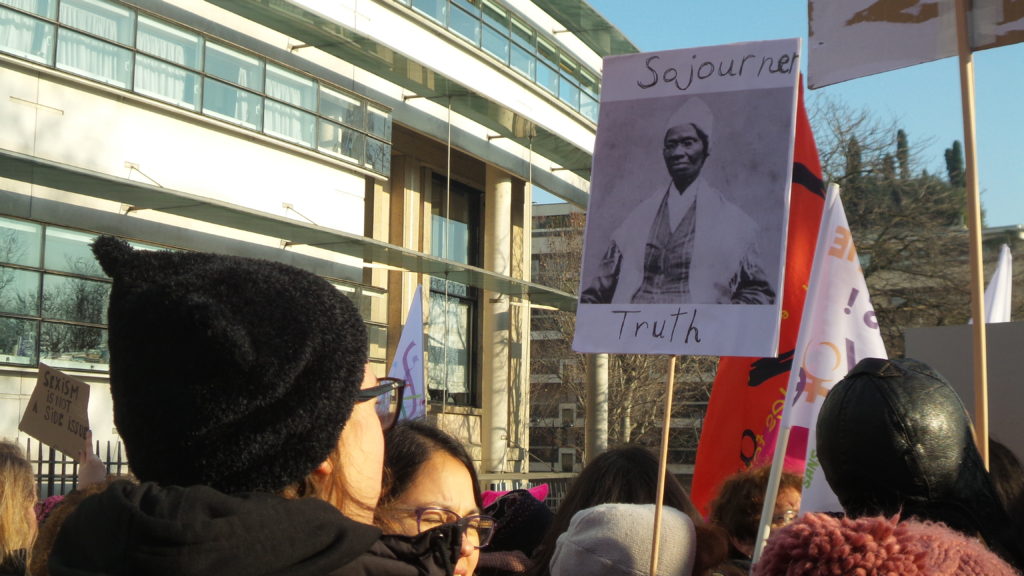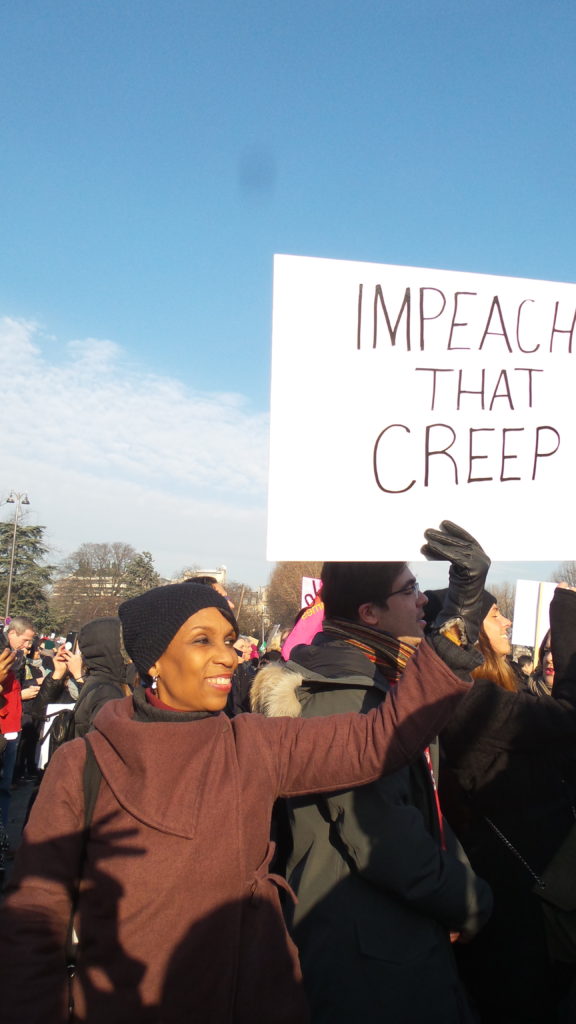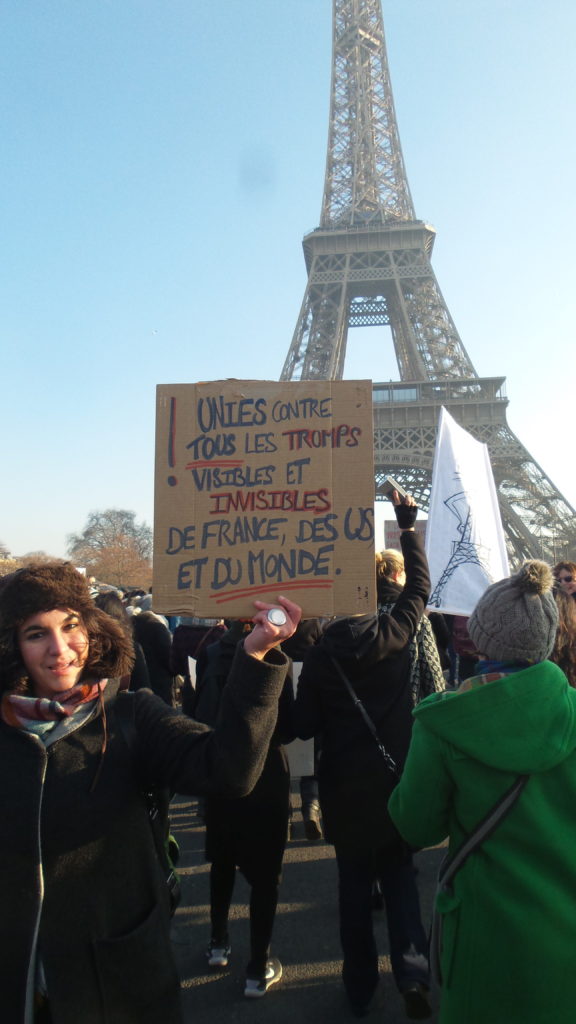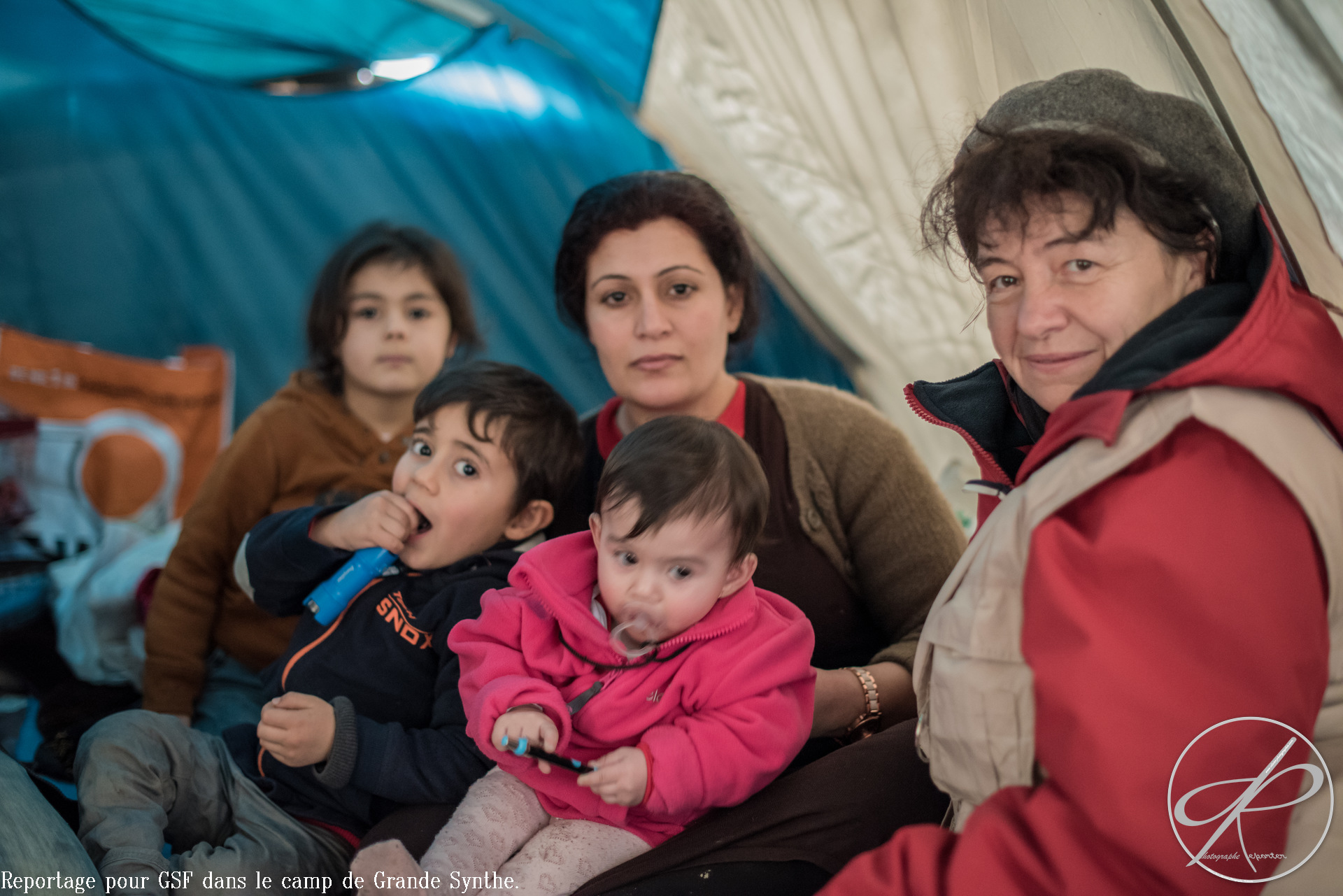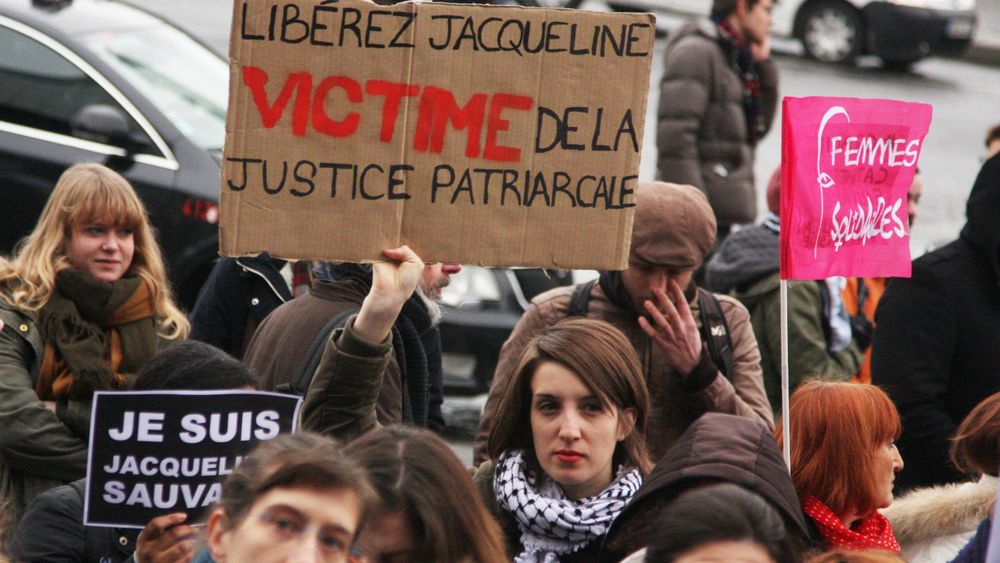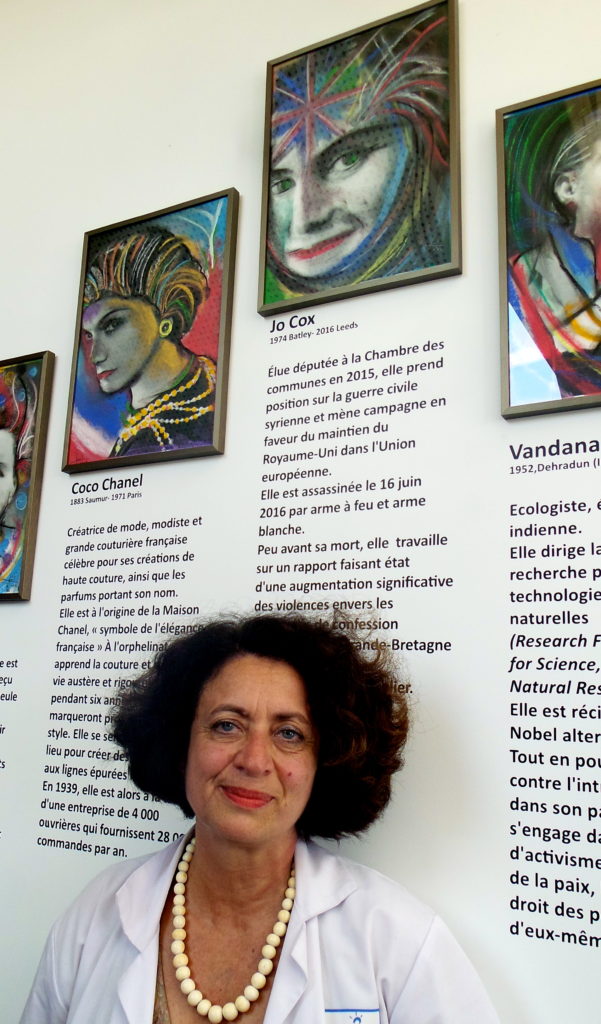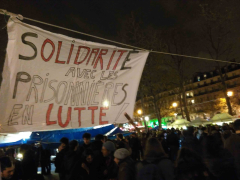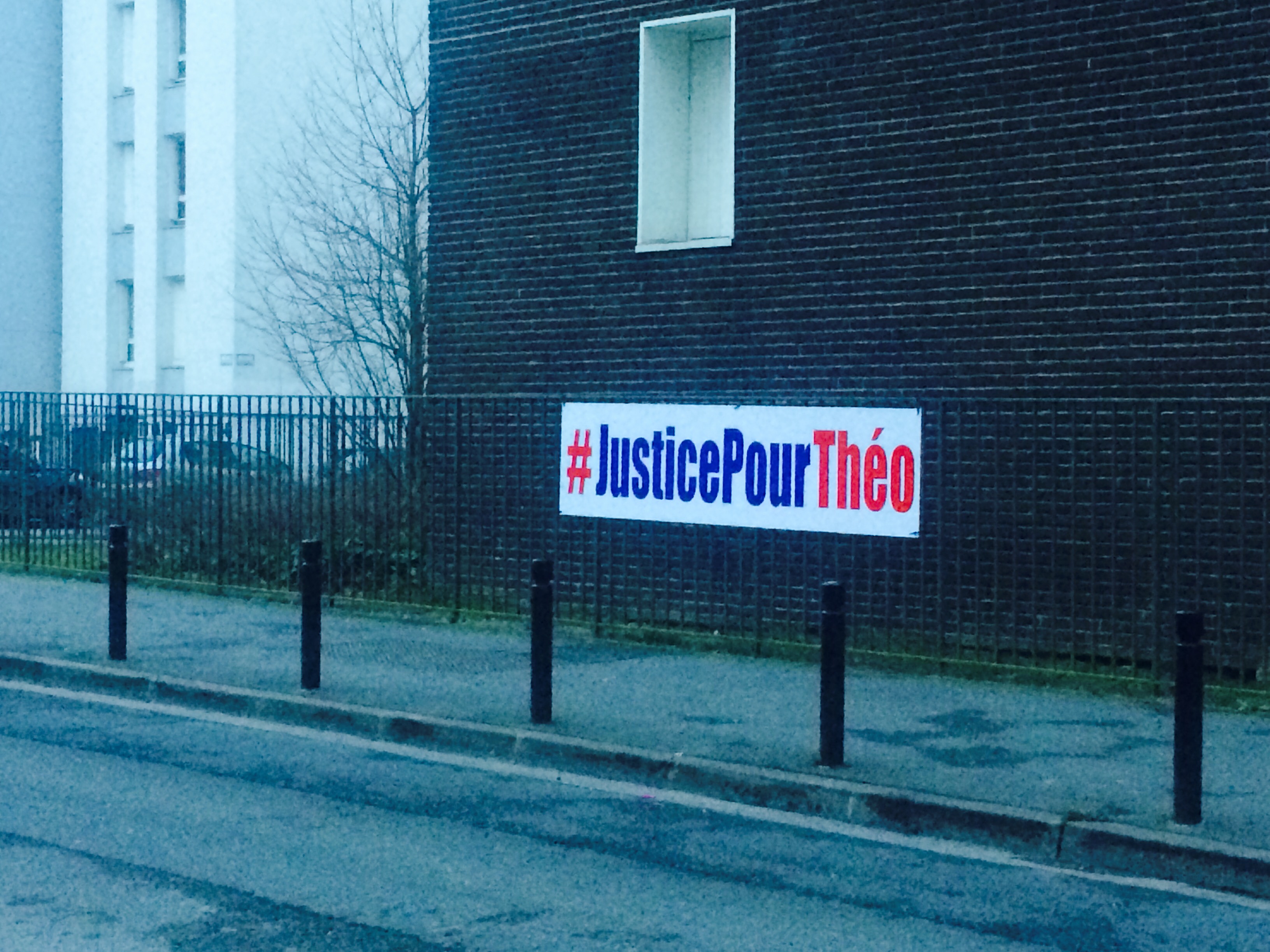
Once more police violence makes the headlines. In France, Theo a 22-year-old young resident of Aulnay-sous-Bois, a northern Paris suburban city, was stop-searched by four special forces police officers few days ago. The search was aggressive verbally and physically; the telescopic (expandable) baton of one of the police officer was forced in the anus of the young man. Theo, who is black, was insulted with slang racial words including the N-word.
The police officers sprayed tear gas into Theo’s mouth, then dragged him, handcuffed, to their car. Theo was in excruciating pain covered with his own blood. Once in the police station, another police officer immediately called the SAMU (emergency medical unit). The doctors were appalled to see the damage on his body with a 10cm (3.5 inches) tear in the rectal region, with a perforated rectum; he was rushed to a hospital operating room. His injuries are serious with possible life damage. He has to keep a fecal diversion with colostomy probably for the next few months.
From Aulnay to the rest of France, the outcry was broad. Mothers of “the city of the 3000”, the neighborhood where Theo lives with his family, led demonstrations. Singing the Marseillaise to affirm that France was their nation, they also said that they were fed up with the police acting like “cowboys”. They expressed their immediate concern, demanding if their sons would be the next one to be raped by police. Some said “we are not here to be on television; here we have doctors, engineers, but we are suffocating.”
They want justice not only for Theo but for all the youth of “les quartiers,” these suburban neighborhoods that have been left out of urban policies. Meanwhile, Theo’s case is in the hand of a lawyer ready to address police violence with his case.
A former police union leader, in charge of security for the right wing political party “les Republicains” was recently elected mayor of Aulnay sous Bois. He based his campaign on law and order. Although he extolled the virtue of strong police presence, he condemned this police violence calling it unbearable and unacceptable. He understood that this time the usual argument that the victim because of his police record somehow deserved the treatment inflicted on him would not work as Theo and his entire family have had exemplary lives. In his surprise visit, even President Francois Hollande played the good guy argument in an attempt to calm down the boiling cities fed up with state and police violence.
The delinquent deserving police aggression is a political argument that has been used repeatedly in recent years to justify increasingly violent police intervention and ID checks based on profiling, including statistical profiling.
Theo’s case was referred to the Defender of the Rights, “an independent administrative authority that oversees the protection of rights and freedoms and promotes equality to ensure access to rights”. This authority had warned President Hollande about the unnecessary character and lack of supervision of ID checks, to no avail. In 2016 the Defender of Rights published a report stating that the youth that had the color of Africa, north and sub-Saharan, were 20 times more subject to ID checks. The report documents discrepancies in the treatment of populations, based on appearance, age and location of the control. The numbers show a degradation of the situation in the suburban areas with only 5% of these young pursuing legal actions against police abuse. The president of this authority declared that Theo’s affair was not a short news affair but a societal and political affair. He insisted on the importance to question these “random” ID checks poorly reported with no actual legal justification,” adding that the police of the republic should be the police for equality.
In 2009, the National Center for Scientific Research showed that in general the police control is determined by the clothes worn as well as the color of their skin, rather than something that done by the young people checked.
Part of the stigmatization or disqualification as full human being is in the language and attitude of the state authority. They are systematically addressed with “tu,” the informal you. According to the Defender of Rights, the informal “you” is used in 40% of the control of the young men of these neighborhoods compared to 16% for the general population. They are also insulted in 21% of the cases compared to 7% for the rest of the population.
The vast majority of the ID checks have no legal or investigative basis, but they are very effective in making feel the young person not belonging and always under scrutiny. Despite the recent riots, the inhabitants of these neighborhoods are committed to assert their proud presence against the constant humiliation and stigmatization encountered. People nationwide are supporting their call for dignity.
ACAT, an association dedicated to fight torture, produced a comprehensive review of the situation in France. Between 2005 and 2015, they counted 26 casualties caused by police, of whom 22 were people of color. Last summer, for example, Adama Traoré died in police custody after. The family is still demanding an explanation as to why he died.
Depoliticizing state violence is a way of justifying it. Many reports have demonstrated that something needs to change in the national policies that mistreat and racialize the youth in France. In this electoral period the stakes are high and the struggle to stop the disqualification of citizens calls for solidarity, as the mothers of Aulnay-sous-Bois demanded. It is part of the struggle for immigrants’, refugees’ and women’s rights. In this time of enmity when victims are made the culprits, people in France need to join the resistance.
(Photos Credit: Bondy Blog)
